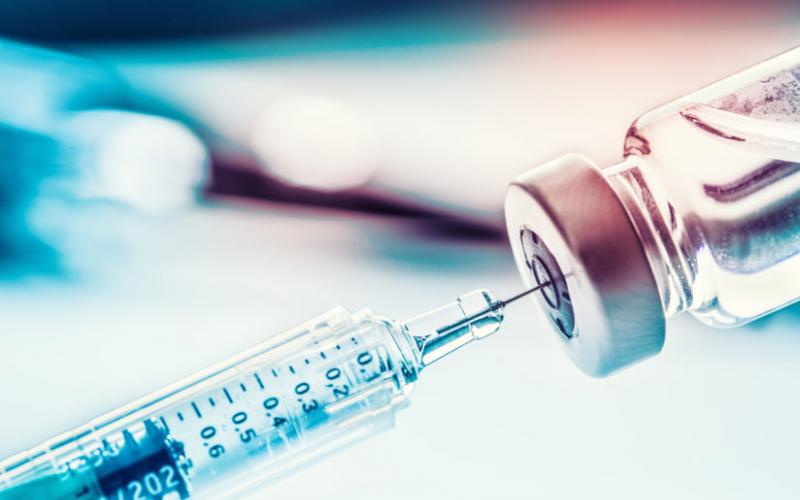A large amount of vaccine-related phone calls and website traffic is prompting the District 2 Department of Public Health to ask residents to be patient as they continue to roll out COVID-19 immunizations and increase staffing and set up special clinics to meet demand.
It is a demand that has local providers struggling to administer vaccines across the state, Gov. Brian Kemp said in a press conference on Tuesday.
Georgia is currently being shipped around 120,000 doses of COVID-19 vaccines each week, with roughly one-third of that allotment being administered to nursing home residents and staff through a federal distribution program with CVS and Walgreens pharmacies, Kemp said.
That leaves state officials with around 80,000 doses weekly to divvy up, an amount far fewer than the 1.3 million people 65 and older and the state’s roughly 536,000 health-care workers who are first in line to receive the vaccine, Kemp said.
“There are simply more Georgians that want the vaccine than can get it today,” Kemp said.
Less than one-third of the nearly 700,000 vaccine doses shipped to Georgia as of late Monday have been administered, according to state Department of Public Health data. Kemp said he aims to have all nursing home staff and residents vaccinated by the end of the month.
“Please know that we are working tirelessly to get our limited supply of vaccines to those who need it and who it would do the most good,” Kemp said.
Locally, District 2 spokesperson Dave Palmer said in a press release Monday all of the District 2 health departments’ phone lines, call center and website are overwhelmed and can not handle the demand.
“We ask that everyone be patient,” Palmer said. “We understand that everyone is anxious, but everyone who wants the vaccine will be given the opportunity to get vaccinated.”
There is a limited supply of vaccine doses currently available at a small number of providers. But, as more of the vaccine is shipped to additional enrolled providers, access to appointments will improve over the days and weeks ahead, Palmer said.
Palmer did not respond to specific questions from The Sun regarding the status of vaccines at the Hart County Health Department. No dates and times to schedule a vaccine on District 2’s website were available as of Tuesday, but it’s unclear whether those spots are filled or if there aren’t enough vaccine doses to schedule appointments.
Hart County administrator Terrell Partain reiterated the need for patience locally at Tuesday’s Board of Commissioners meeting. He said the local health department typically operates with only two nurses and limited office staff, but that reinforcements have been called. He warned that the process locally will still take a while.
He said people can call 770-531-5692 to try and schedule an appointment, but even at the district level, it is difficult to get through, he said.
The commission approved Partain to use CARES Act funding to do what needs to be done to help rollout the vaccine locally.
Partain said county emergency medical services are currently on diversion from area hospitals because they are full, making it difficult to find even emergency room space to take patients. He called the situation dire and said it doesn’t appear to be getting better.
It is important to remember, the District 2 press release noted, that the vaccine takes two doses, given 21 or 28 days apart, depending on the manufacturer. For the Pfizer vaccine, it is 21 days apart and the Moderna vaccine is 28 days apart. This means appointments for the second dose must be scheduled when the first dose is received. This process also places some limits on the speed at which the vaccine can be given.
Public health is adding staff to help with vaccine administration, according to the release.
The DPH is partnering with other health care providers, colleges and universities to utilize nursing students, paramedics and other health care professionals to help vaccinate residents.
Public health is also setting up special clinics where they can vaccinate larger groups of people at one time, the release said. An announcement will be made about these clinics when they have staffing and enough vaccines on hand. Appointments will be required.
The special clinics will require larger venues where people can safely socially distance while being vaccinated and then wait the required observation time after being vaccinated.
“We continue to place orders for more vaccine as we administer the vaccine on hand,” Palmer said. “This will keep our vaccine supply line going.”
The request for residents to be patient comes as Northeast Georgia is dealing with the worst outbreak of the disease it has seen yet.
The death toll in Hart County reached 23 confirmed deaths this week and an additional 13 deaths are listed as “probable,” according to the DPH. In the past two weeks, Hart County has seen 243 new cases of COVID-19 added to its total. In all, there have been 1,335 cases reported in Hart County since the DPH began tracking the data.
Students in the Hart County school system are set to return to in-person learning on Jan. 19 after the system decided to delay re-opening amidst the surge in cases around Northeast Georgia.
About one out of every four people who were tested for COVID-19 in Hart County last week received positive results, according to the DPH. The testing percent positivity rate, which the DPH says can indicate the level of community spread, was at 24.2 percent in Hart County as of Tuesday.
Statewide, the death toll hit 10,299 as of Monday and more than 642,000 cases have been reported since March.
Georgia saw a record of single-day cases added on Jan. 8 when 10,391 new cases were reported.
Michael Hall and Beau Evans, of Capitol Beat News Service, contributed to this article.
Image
Body

